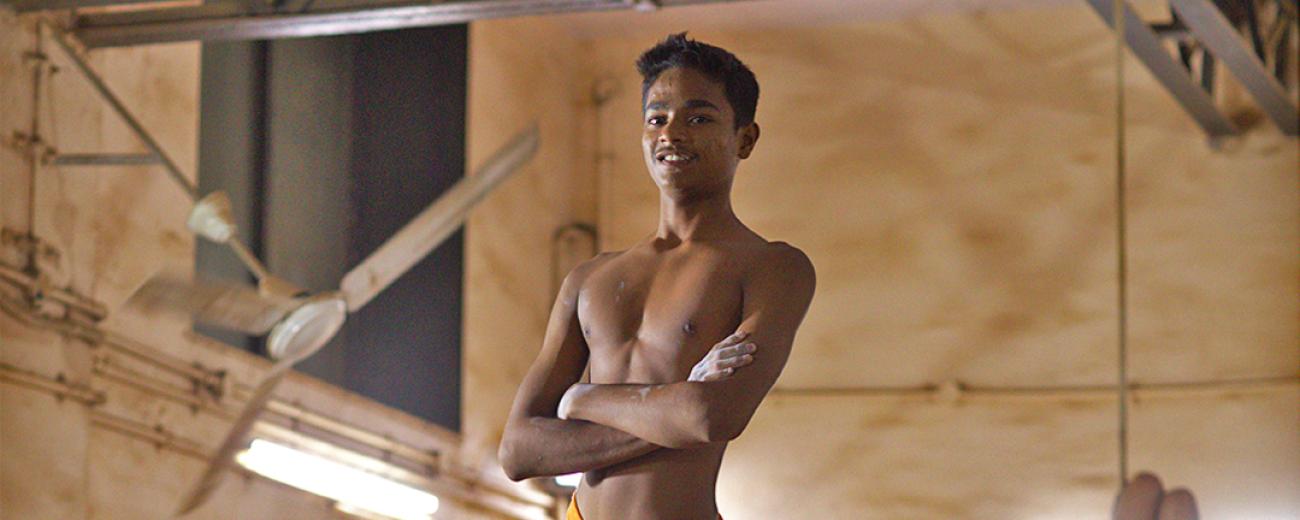
Film screening: The Wrestler’s Cane

Key information
- Date
- Time
-
7:00 pm to 8:30 pm
- Venue
- SOAS University of London
- Room
- Khalili Lecture Theatre (Lower ground floor)
- Event type
- Film screening
About this event
Join us for a screening of the documentary film, The Wrestler’s Cane.
The Wrestler’s Cane is a compelling documentary that explores the Indian sport of mallakhamb, which derives its name from the wooden pole used to perform yogic-like postural feats at great heights.
SOAS Centre of Yoga Studies is honoured to host Philippa Frisby, Director, in discussion with Lucy May Constantini, Open University, which will be followed by a screening of the film. We also hope to hear from one of the practitioners who stars in the film and currently resides in London.
This is an in-person only event by the SOAS Centre of Yoga Studies.
Film Synopsis
The Wrestler’s Cane is a life-affirming documentary exploring the ancient Indian sport of Mallakhamb, where devotees leap, hang, balance and perform yogic poses using an 8’ 6” teak tree column.
This extraordinary artform originated in wrestling but over centuries, it’s evolved into a mystical display of skill, strength and fearlessness that requires singular focus and sustained discipline.
An extension of the science and philosophy underpinning yoga, those practising Mallakhamb find that the clarity and dedication it requires soon affect all aspects of their lives.
Indigo Eye’s inspirational film follows Uday Deshpande, a towering figure within this sport who’s just been honoured with the Padma Shri Award for his outstanding contribution to Mallakhamb. His impassioned belief – that this sport is for everyone – instils confidence and courage in his students of all ages and abilities and, to demonstrate that, The Wrestler’s Cane focuses on some of his unsighted students as they attempt this extraordinary challenge.
What unfolds is a powerful study of possibilities as we see the transformational power of Mallakhamb and its devoted teacher in gifting his students with life-changing self-belief.
Director
Philippa Frisby, an independent filmmaker and Iyengar teacher, started her career in film and television after studying Comparative Religion at Bristol University. Her initial work in film includes The Tale of the Three Lost Jewels (1994), the only feature film ever shot in Gaza. Her initial work in TV includes work on Dispatches, The Torture Trail and The Saudi Tapes now an important historical film, made by the first television journalist ever to interview Osama Bin Laden in Afghanistan in 1996 before 9/11.
Philippa founded Indigo Eye Productions and under its banner, she has produced and directed two documentary feature films, the critically acclaimed The Circle (2018) and The Wrestler’s Cane (2023).
Respondent
Lucy May Constantini’s recently submitted PhD thesis in the School of Religious Studies at the Open University explores the relationship between practice and textual traditions in the South Indian martial art, kaḷarippayaṟṟ˘, funded by the UK Arts and Humanities Research Council’s Open-Oxford-Cambridge Doctoral Training Partnership.
This interdisciplinary research encompasses ethnography and the study of manuscripts in Malayalam and Sanskrit. Her methodology is informed by her background as a dance artist, where her work has investigated the confluence of martial arts, yoga and postmodern dance as maker, performer, facilitator and teacher, in the UK and internationally.
She has also been engaged with yoga, either as practitioner, teacher, or teacher trainer, for over three decades, and has worked in radio broadcast journalism, including producing an hour-long documentary for BBC English Regions on the relationship between dance and spiritual praxis.


